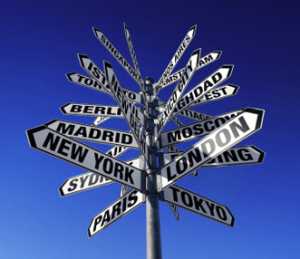Migrants gain both economically and socially – Research
 A research conducted on economic and social counterfactuals of migrants from five regions of the country reveals that they gained in real income as well as other social benefits.
A research conducted on economic and social counterfactuals of migrants from five regions of the country reveals that they gained in real income as well as other social benefits.
It said such benefits are seen in their marriage, child bearing, family formation and education, among others.
The research entitled “Migration to Cities in Ghana: An analysis of the counterfactuals”, surveyed 1,412 households in the Volta, Brong Ahafo, Northern, Upper East and Upper West regions and it sought to establish whether or not migrants and their households have actually benefited in their current status.
Data was collected from recent rural-urban migrants in Accra/Tema (the destination), members of their households left behind and non-migrants at the origin (control group).
The research was conducted by Migrating out of Poverty, a research programme consortium coordinated by University of Sussex in partnership with the Centre for Migration Studies, University of Ghana, with funding from UK’s Department for International Development.
The seven-year project focusses on the relationship between migration and poverty in six regions across Asia, Africa and Europe.
Dr John K. Teye, a Research Fellow, University of Ghana, said the aim of the project was to find out whether migrants and their households gained in real income and welfare as a result of their migration.
He said previous studies only focused on how they are gaining but the current research delved into the impact of migration on the well-being of migrants and migrant households left behind to inform policy makers on the areas that need social protection.
“Earlier studies on migration and poverty outcomes did not examine how rural-urban migrants in Ghana fare in the city relative to how they would have fared had they stayed in their original areas,” he said.
He said majority of migrants spoken to (about 46.2 per cent) noted their families would have been worse off if they had not migrated.
Most of them, he said, also acknowledged that though they might not be gaining in terms of education, their dependants back home gained as they remit their households on regular basis to pay school fees for their siblings.
“In some cases the migrants admitted that migration enhanced their relationship with their spouses because of the money they have been sending home. Others too were of the view that migration enhances their chance of getting married and giving birth,” he said.
Dr Teye said one of the migrants who sells khebab said he was able to build a five bedroom house for his family in the northern part of Ghana and has acquired another plot in Kasoa to build one for himself and wife.
“The family of this man thought he was performing marvelously and are demanding that he should buy a car for the family left behind in the North,” he added.
Dr Teye, however, cautioned that migration might be good but could at the same time be negative as not everyone would benefit from it and called for social protection for new migrants to help them achieve their purpose of migrating.
Professor Mariam Awumbila, Project Coordinator, Migrating out of Poverty at the Centre for Migration Studies, said the consortium focuses on understanding the relationship between migration, poverty and development and the factors that mediate it.
She said the consortium aimed at promoting policy approaches to maximize poverty reduction and developmental impact of migration and minimize the costs and risks of migration for the poor.
Source: GNA
